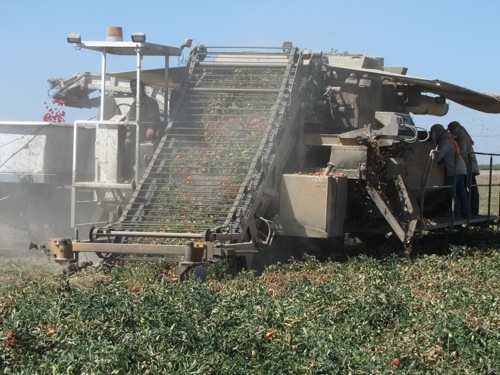Possibility of Higher Fines
Currently, county agricultural commissioners can levy fines of as much as $5,000 against growers, labor contractors and those applying pesticides for violating regulations on pesticide use.
Quirk's bill, AB 1419, would give the California Department of Pesticide Regulation authority to issue $25,000 fines for more serious violations. DPR is one of the bill's sponsors.
"We think the most serious violations warrant a higher penalty amount," said Charlotte Fadipe, an agency spokeswoman.
"We have to hold people accountable if they do things that they really know they shouldn't do," said Quirk, chair of the Assembly's Environmental Safety and Toxic Materials Committee. "There has to be some enforcement."
But Quirk emphasizes his bill is a "work in progress" and that he's still working out the proposal's details.
It's been 15 years since the state raised fine amounts for breaking pesticide laws. Advocates for farmworkers and for efforts to reduce the use of dangerous chemicals in the agricultural industry say it's time to bring more teeth to enforcement.
"The current fines amount to pocket change for large-scale growers," said Paul Towers, organizing director at Pesticide Action Network North America. "Until the penalties are significant enough, they'll fail to deter problems with pesticide drifts in the future."
Increasing fines will incentivize growers, farm labor contractors and those who apply pesticides to follow the rules, said Caroline Cox, a senior scientist at the Oakland-based Center for Environmental Health. The current fine amounts are the same as a "slap on the wrist," she said.
Pushback from Farm Bureau
At least one agricultural industry group is questioning whether the proposal will be effective.
"We have met with DPR and are trying to understand the need for the increased authority and fine threshold," said Cynthia Cory, director of environmental affairs for the California Farm Bureau Federation, in an emailed statement.
"The Farm Bureau supports penalties and prompt enforcement for violation of the safe use of chemicals," Cory said. "The best prevention to insure pesticides are handled correctly is continued education, which we fully support and help our farmers and ranchers obtain."
Cory noted that agricultural commissioners can push for stronger penalties against pesticide violators by asking local prosecutors to pursue more egregious cases.
The association that represents agricultural commissioners has yet to take a position on the proposal.
"We are internally reviewing the bill," said Sandy Elles, executive director of the California Agricultural Commissioners and Sealers Association, in an email, adding that the group's legislative committee is gathering feedback from its members.
"We are carefully assessing the bill's impact to the state-county pesticide enforcement partnership," Elles said.
Quirk emphasized that his office was working with farmworker advocates and industry representatives in talks that could lead to changes to his bill, which is scheduled to be heard in the Environmental Safety and Toxic Materials Committee on Jan. 9.
Recent Incidents Resulted in Fines
That hearing comes several weeks after the Kern County agricultural commissioner imposed nearly $50,000 in fines for a series of violations against five companies in connection with an investigation into a pesticide incident that sickened 92 garlic harvesters on the outskirts of Bakersfield last August.
That probe found that a soil fumigant, Vapam, had been injected into a nearby field, and then seeped out of the ground and drifted. In the process of investigating that incident, the commissioner learned that at around the same time the workers were getting sick, a helicopter was spraying Vulcan, which contains chlorpyrifos, which is now on the state's list of substances known to cause cancer, birth defects and reproductive harm, on a nearby field.
Several months ago, Kern County issued a similar fine against two companies for violating pesticide rules in an incident that sickened 37 workers harvesting cabbage near Maricopa in May. One of the firms that faced penalties was Sun Pacific, the produce company behind the popular Cuties mandarins and clementines.
The county agricultural commissioner's investigation found that Vulcan and Cosavet DF, which contains sulfur, drifted a half-mile into an area where the farm employees were working.
Sun Pacific has contested the penalty and a hearing on the case is scheduled for March, according to Kern County Agricultural Commissioner Glenn Fankhauser.
In June a chemical release that sickened six raspberry pickers in Watsonville prompted an investigation by the Santa Cruz County agricultural commissioner into several companies, including two firms affiliated with the Dole Food Co. and another tied to Driscoll's, a major berry distributor.
That came a week after 18 celery workers were sickened in Salinas, possibly by an insecticide, prompting an investigation by the Monterey County agricultural commissioner.
Santa Cruz and Monterey county officials say the investigations into those incidents have yet to be completed.
KQED's Sonja Hutson contributed to this story.
Note: The California Farm Bureau Federation issued a revised statement after the publication of this story. It reads: "We have serious concerns with the bill in its current form and have communicated those concerns to the author's office. We hope to resolve these concerns, but are opposed to the bill in its current form."

